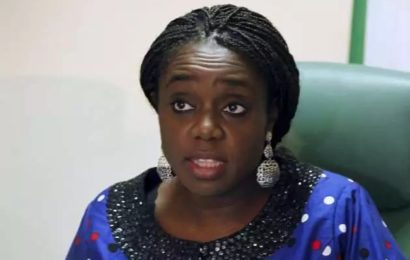 Interconnect and Value Added Service (VAS) Debts in the telecommunication sector have increased to the tune of billion of dollars according to operators and consequently about 30% (VAS) providers have thus been frustrated out of business, this NewswatchNigeria have gathered.
Interconnect and Value Added Service (VAS) Debts in the telecommunication sector have increased to the tune of billion of dollars according to operators and consequently about 30% (VAS) providers have thus been frustrated out of business, this NewswatchNigeria have gathered.
Experts and industry watchers said this interconnect debt dispute have continued to range and has now accumulated to the extent that it is now identified as a major militating factor against the anticipatory growth of businesses in the sector.
As VAS providers are lamenting about the increasing debt telecommunication operators owe them, Internet Service Providers (ISPs) are also not at good times, as they have now incurred huge debt profile on infrastructure sharing and interconnect duties as partners and dominant operators have not paid for the content they provide for their network. The VAS and ISPs and they are helpless. They are hoping NCC would help save their business and create enable business environment that would be favourale for content providers through a new policy for the industry.
Hence, industry regulator, Nigeria Communications Commission (NCC) has been urged on the need for a regulatory reform that will reshape commercial operation among players in the industry in the bid to save the economic impact of the sector on the nation.
Stakeholders and telecommunication watchdogs made the call at Association of Telecommunication Companies of Nigeria (ATCON)’s Telecommunication Regulatory Forum (TERF) recently in Lagos where issues of debt dispute and connectivity were discussed as challenges and hiccups inhibiting growth in the Nation’s internet and telecommunication space.
It could be recalled that Nigerian Communications Commission (NCC) recently made a bailout to the of N10Million as intervention on interconnectivity debt among operators and their counterparts in the interconnect segment by same telecom operators.
But the Issue still remains here with us as Professor Umar Danbatta, the EVC has resolved that the commission would made a regulatory reform beyond the intervention. he admitted that “On the VAS segment, we believe that the absence of detailed regulation with appropriate market segmentation is responsible for interconnect disputes”.
Content providers and other Value added services providers are always at the mercy of the big telecommunication operators and this has arguably make the telcos indebtedness to these content providers skyrocketed since 2013 till date without redress.
In the VAS market, there are both operators and licensees. While the operators focus on special numbering, the licensees focus on content provisioning using short codes and they are the worst hit following inadequacies in the market.
The licensees numbering over one hundred have in the past sought the intervention of the Value Added Services Providers Association of Nigeria (VASPAN) and the Association of Telecommunications Operators of Nigeria (ATCON) with tones of letters written in that regard.
Worthy to note that that in 2013, NCC took first step to put in place, regulatory framework to protect consumers and also create revenue streams for service providers in the industry. The exponential growth in the Nigerian telecoms industry gave rise to the evolution of VAS, where its operators provide support communications services to subscribers, via the smartphone.
They provide plethora of services such as news breaks, ring back tunes, telemarketing, mobile entertainment, flight information, among others. But such services are becoming a nuisance to telecoms subscribers as they constitute unethical practice, forcing unsolicited text messages on subscribers and compulsorily billing them for the services.
Revenue Sharing Formula
Till now, there has not been regulatory intervention to decide the revenue sharing formula hence it has been a business agreement of the telecom operator and the licensee involved.
It was discovered that the sharing formula varies depending on the bargaining powers between a licensee and the telecom operator. While some agree for revenue sharing on 40:60 percent with the telco taking the lion’s share, the least ratio is 15:85 per cent.
For instance, in pre-licensing era, Econet paid 60% of generated VAS revenue to the licensee. The peak of the market was between 2012 and 2013 but has been on downward trend since 2014.
The operators are also complaining that since revenue on voice calls started dropping, it has also affected the VAS segment, but the licensee have argued that they should be allowed to leverage on the data segment to shore up the revenue.
The debts are building up that a lot of VAS companies are folding up.
A particular VAS licensee which generated over one trillion naira for a big telco between 2014 and first quarter 2016, with a substantive agreement to be paid 20% of the revenue, has yet to receive any payment.
Even when the operator later agreed to pay, with a credit note, several months after the agreement is yet unfulfilled.
According to one of the licensees, “Some other operators if they agree to pay you they slash the percentage to their satisfaction, telling you they deducted commissions”.
Need For Regulatory Policy on Sharing Formula
According to Mr. Hyacinth Anucha, coordinator, Value Added Service at ATCON, said that available documents show some discrepancies in the system requiring NCC’s regulatory intervention to sanitize the sub-sector.
“Although I cannot categorically say that this operator owns this VAS licensee this amount or the other, but there is need for regulatory intervention to make all parties feel fulfilled. If we should say NCC should intervene this year that means next year they are still going to intervene in the market. But if there is policy document in place it will deter anyone from owing while the VAS licensees leave up to their expectations too.
Speaking on the implications of the debts on the industry, he said, “Today we talk about local content and there is a framework for it. Then, we are not paying the people that are providing the content, of course we are sending them out of the market; that will also amount to job lose, sending a lot of people back to the labour market and encouraging crime. The youths are innovative. There must be a policy that supports them. If not, the smaller businesses will die. That is why believe there should be a policy to ensure the bigger players so not kill the smaller players”.
He however admitted that NCC has made efforts in the past to ensure the debts are recovered. “But what we are saying is that instead of intervention policy, there should be a regulatory policy on ensure these debts are not continued to be owned.
Recounting the number of VAS licensee that have closed shop due to stifle market forces, “About 30% of them are off. If you check you will not see them again”.
NCC Consultation on New VAS/Telecoms Connection
Meanwhile, Professor Umar Danbatta, EVC of NCC represented by Engineer Ubale Maska, executive commissioner (Technical Services) at the Commission gave some regulatory insights into VAS and Interconnect markets at TERF 2016.
He said that the Commission’s approach to interconnect and VAS debts in the telecom industry is persuasive.
The EVC said, “The regulator is not interested in micro managing financial and relationships between, and among service providers, that have been substantially protected by subsisting commercial agreements.
“Interconnect debts have not been really a big issue in the industry except in cases of disputes. But there have been cases of interconnect fees disputes between service providers. In such cases, the regulator has intervened. In the past one year, such intervention has resulted in payments of about N10.5 Billion from about reported N17 Billion disputed interconnect debts. Agreements have also been reached for the settlement of outstanding debts.
“On the VAS segment, we believe that the absence of detailed regulation with appropriate market segmentation is responsible for interconnect disputes. We have received reports, especially from the VAS providers, of alleged exploitation by the big operators. On the other hand, the service providers have complained about the parasitic nature of this service. There is also a fusion of roles between the identified market segments, resulting in distortions in the market”.








